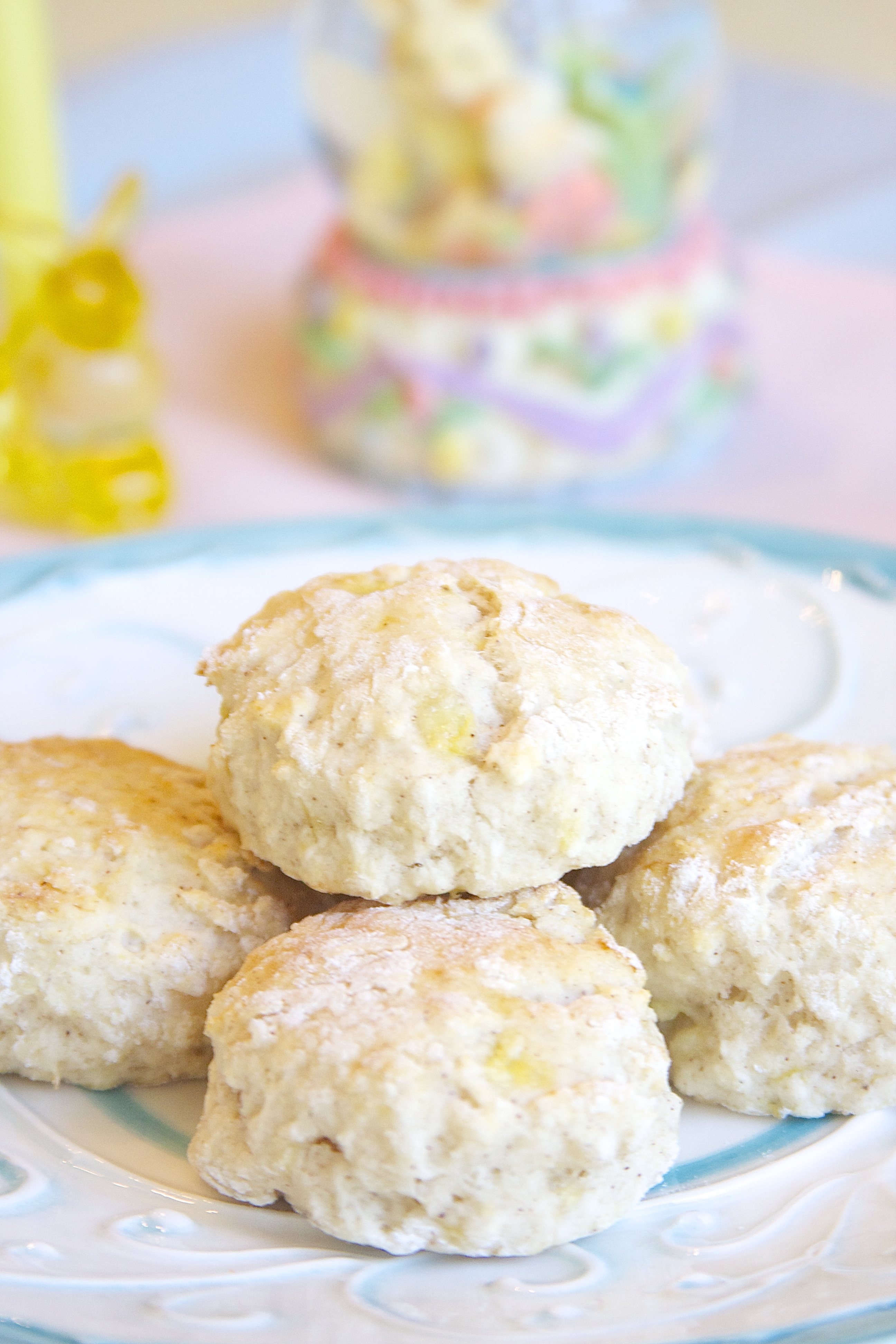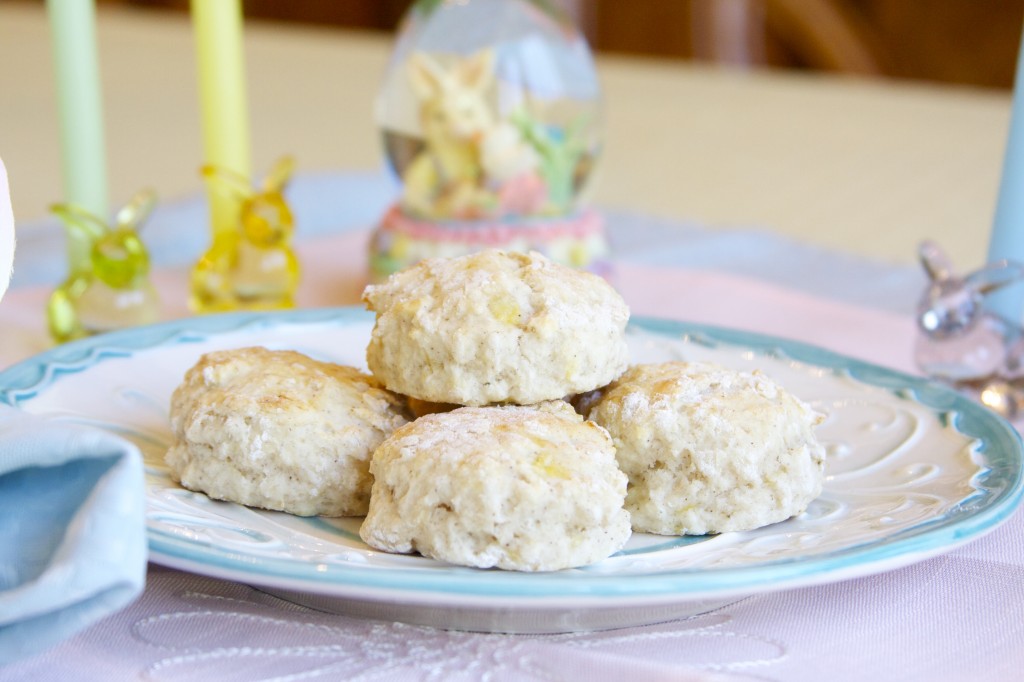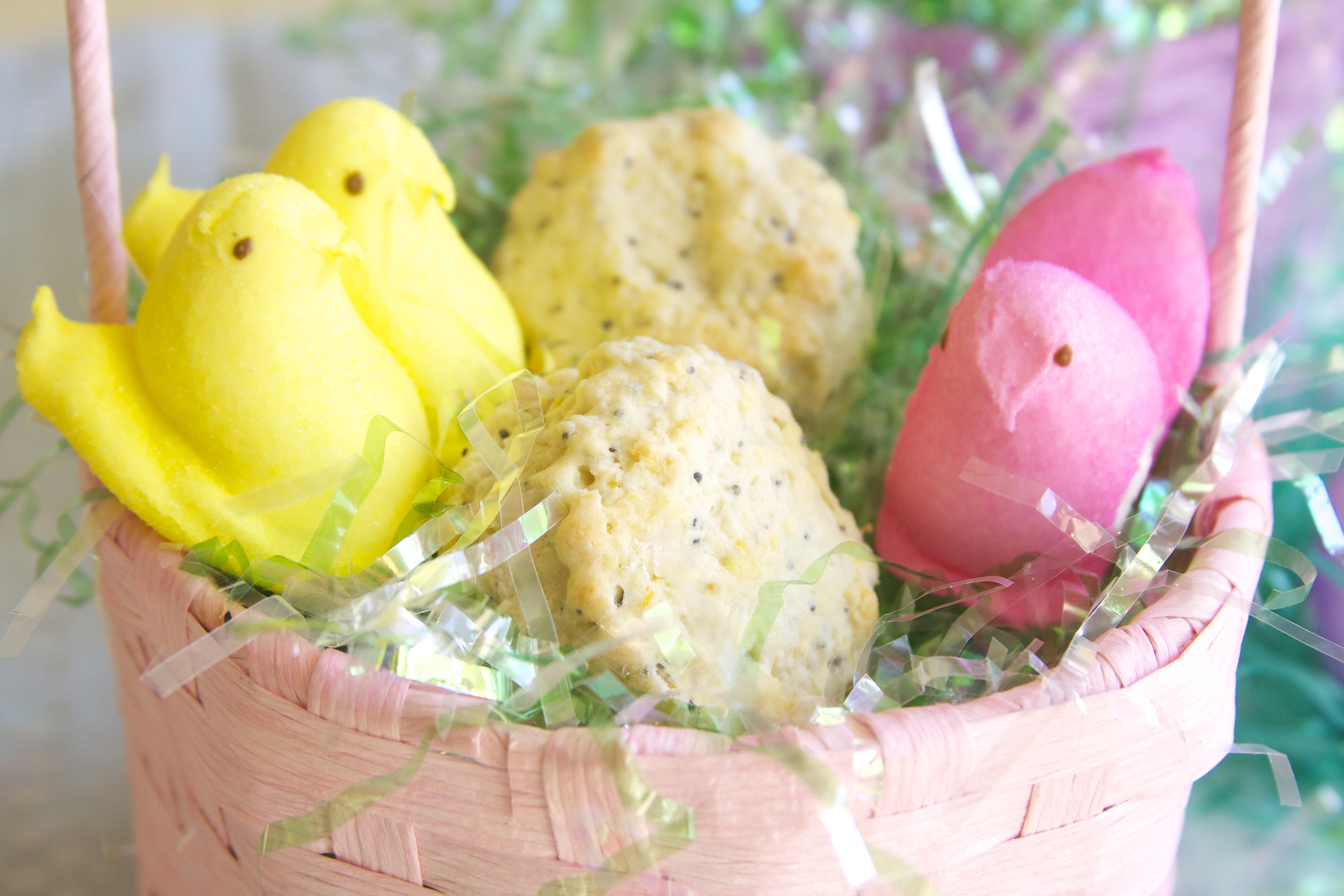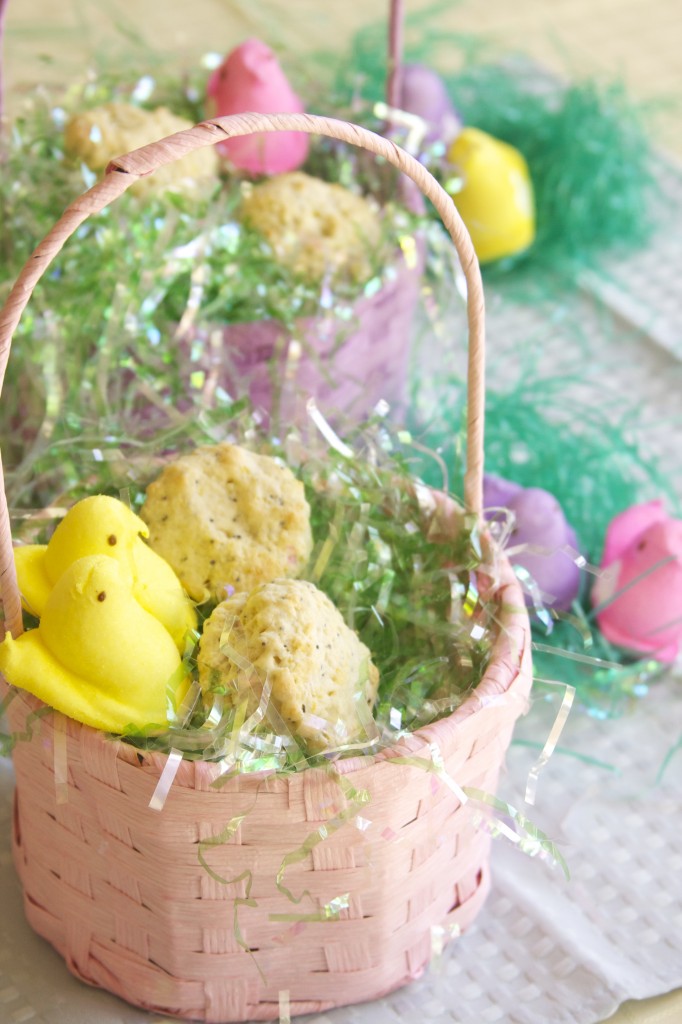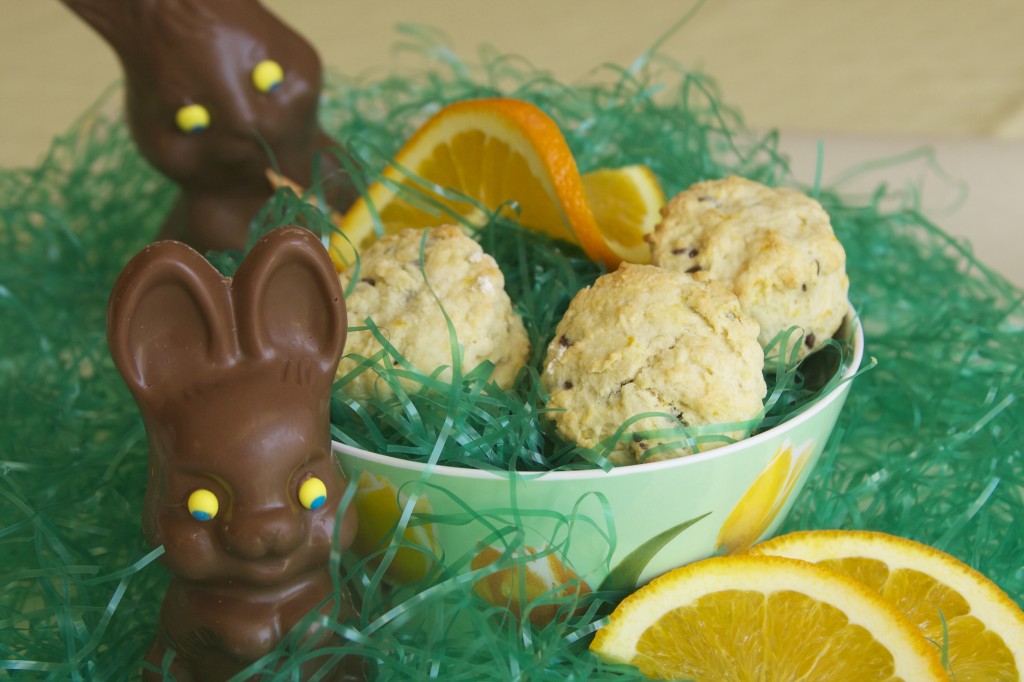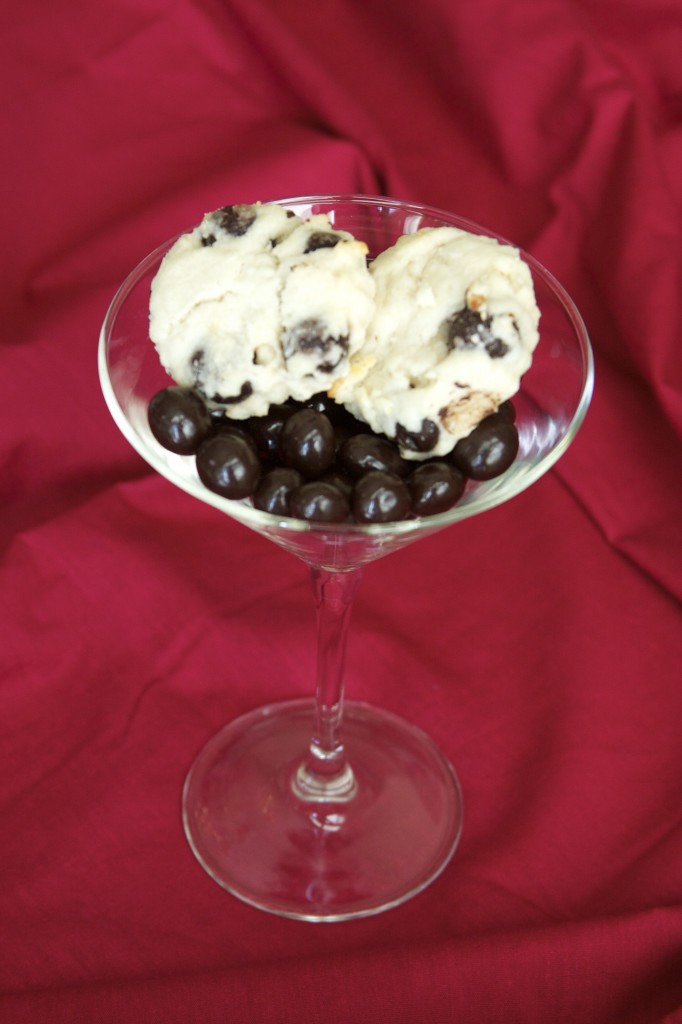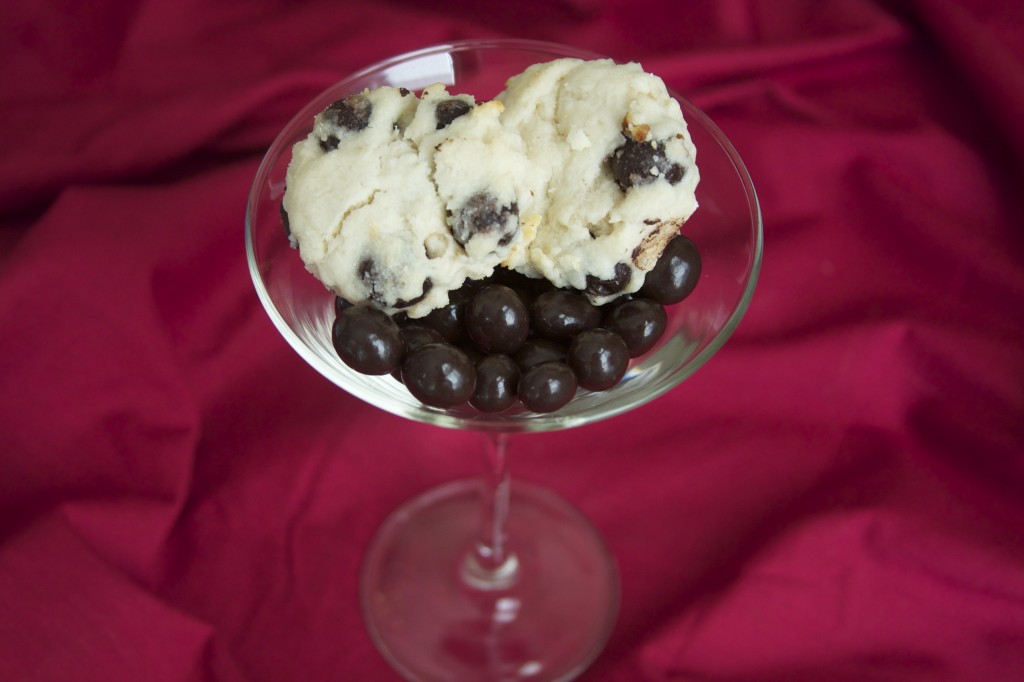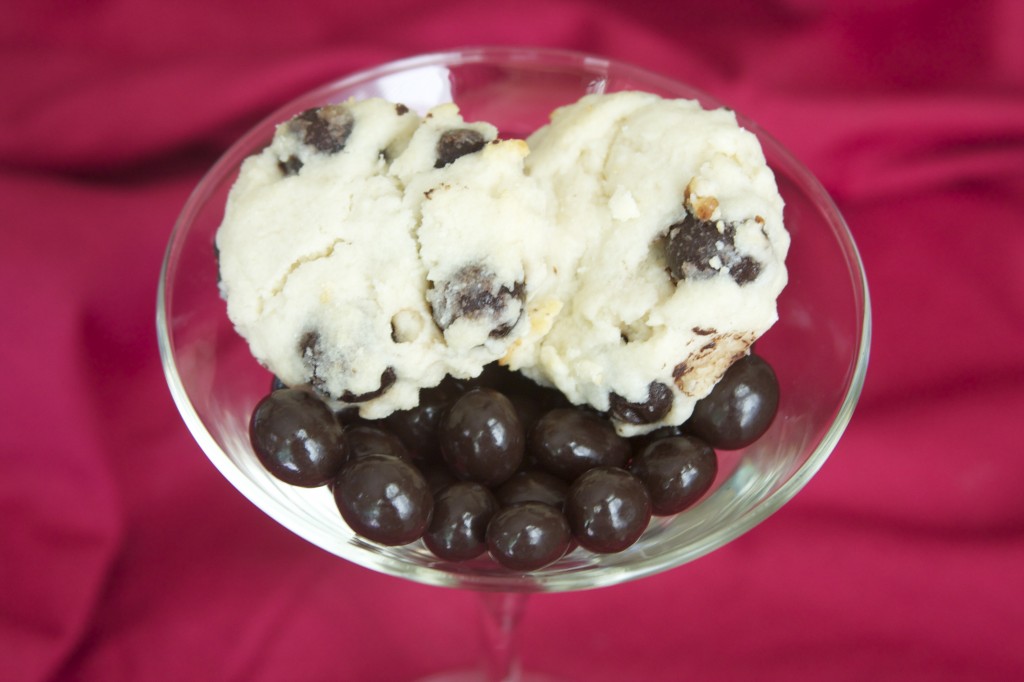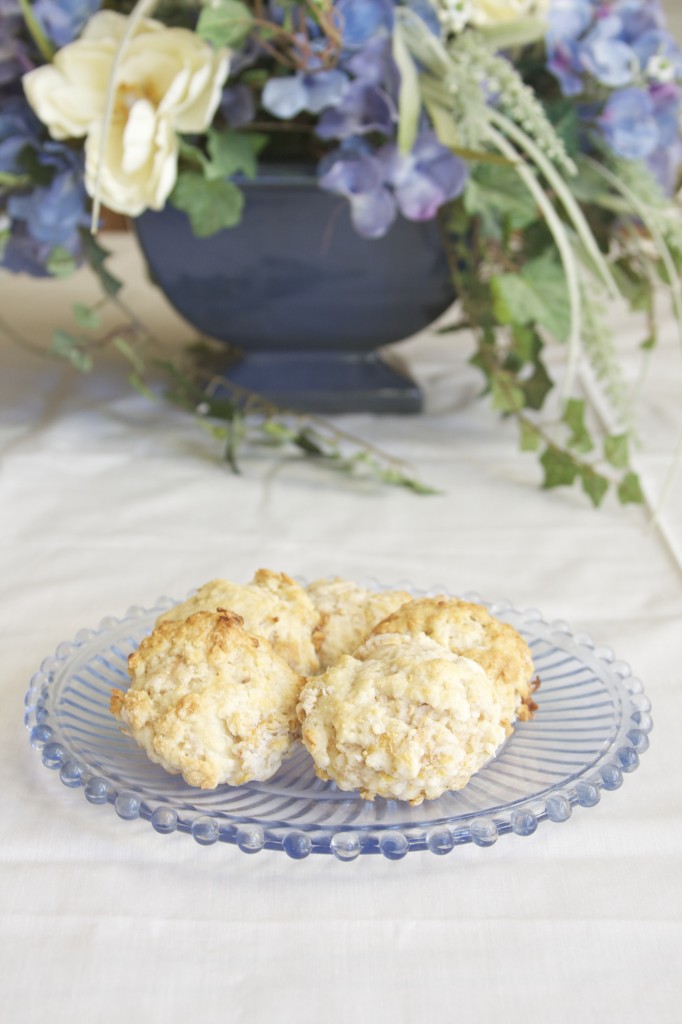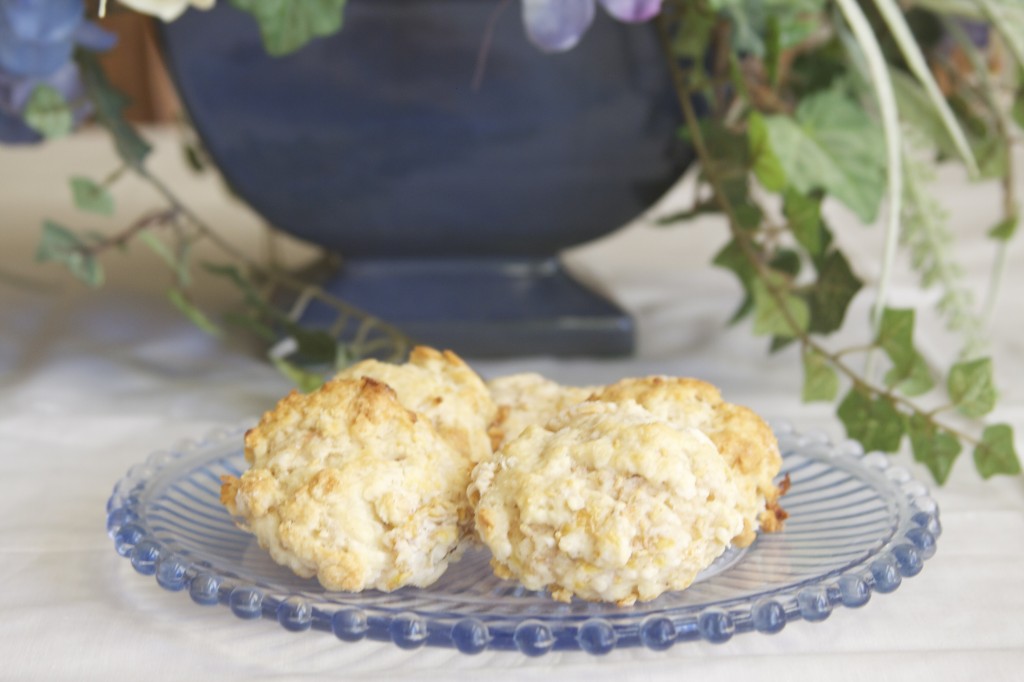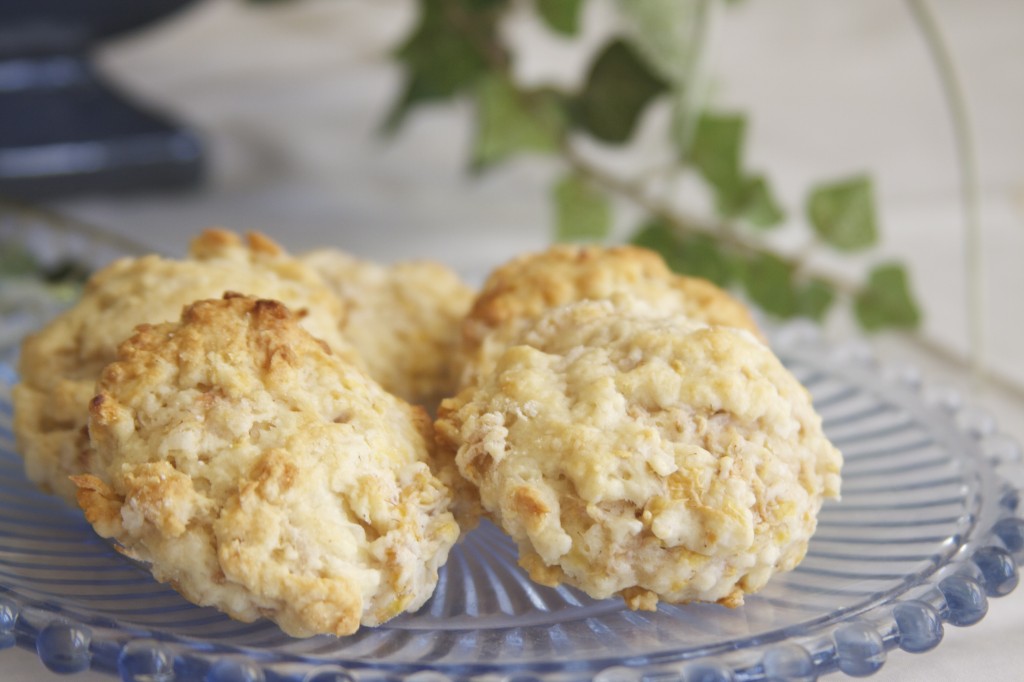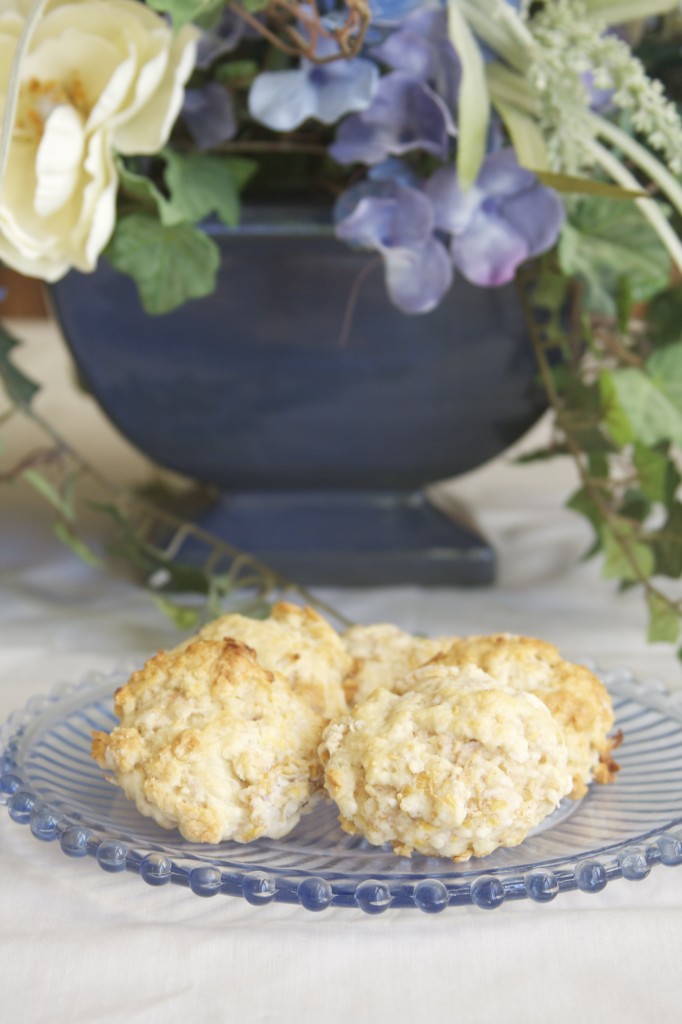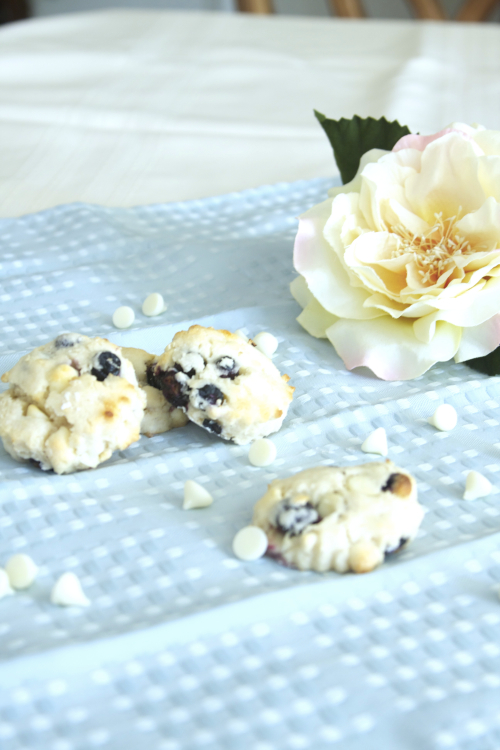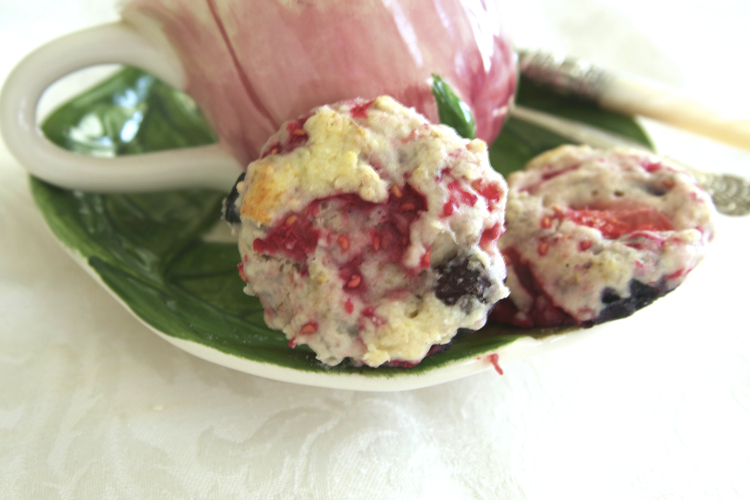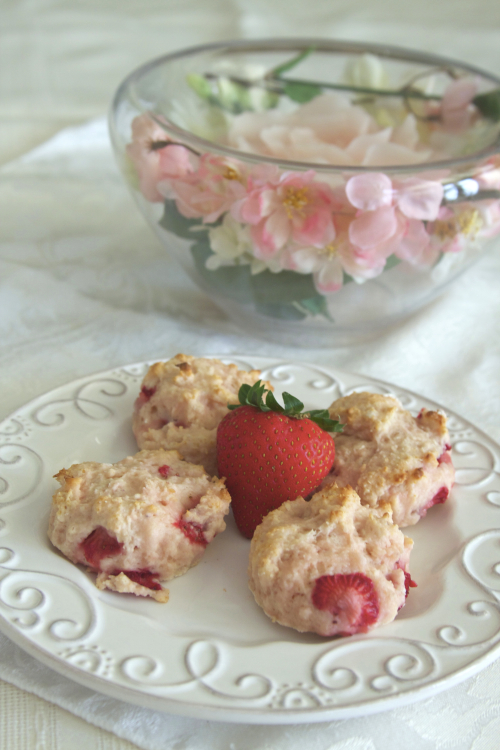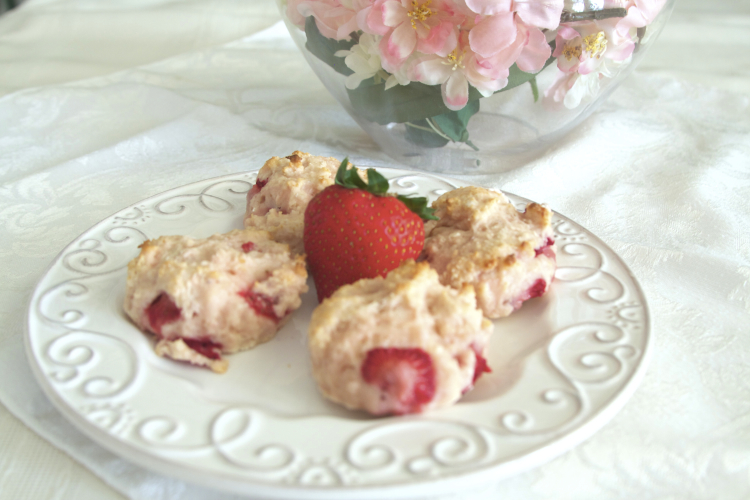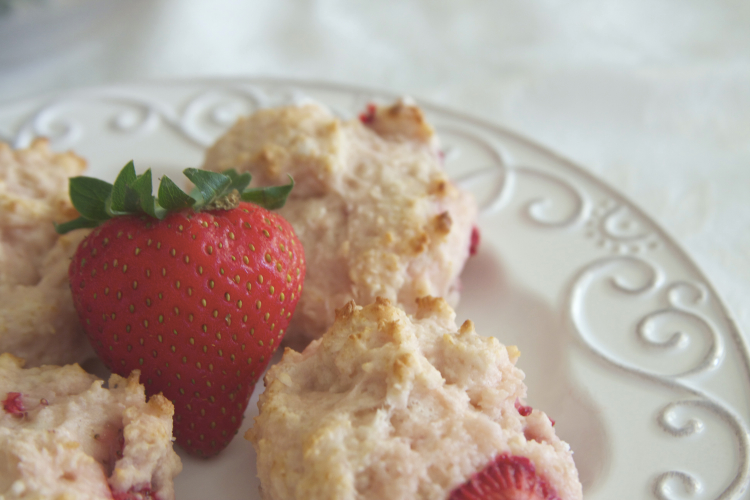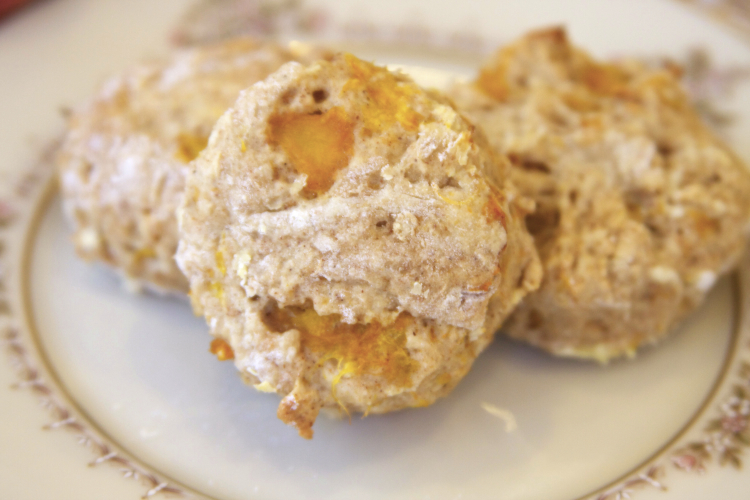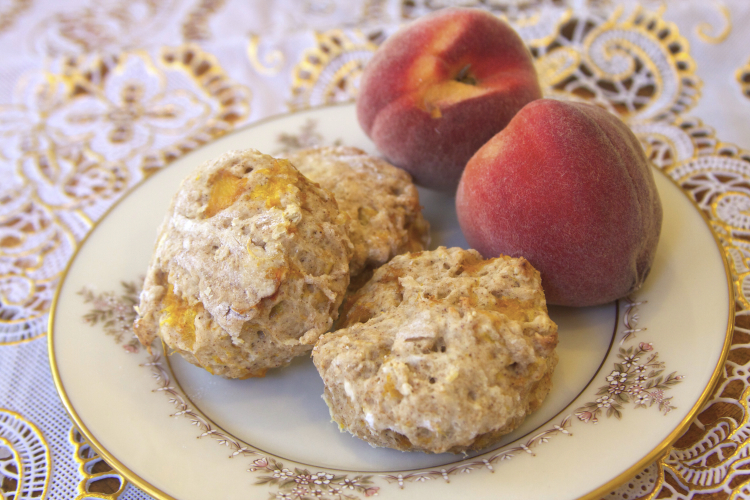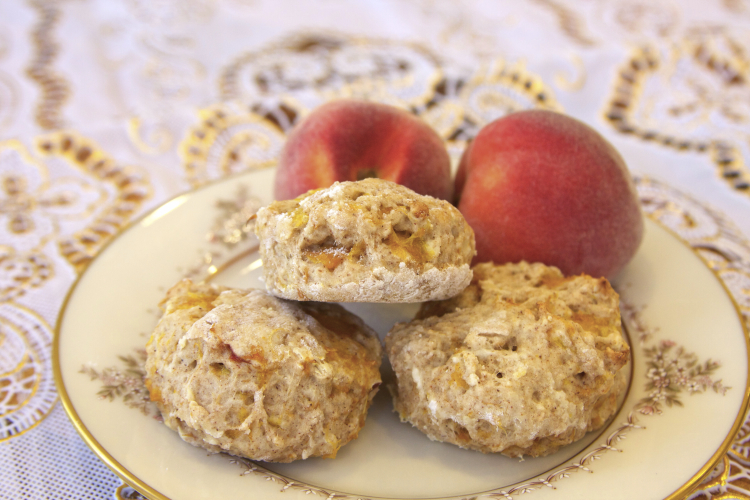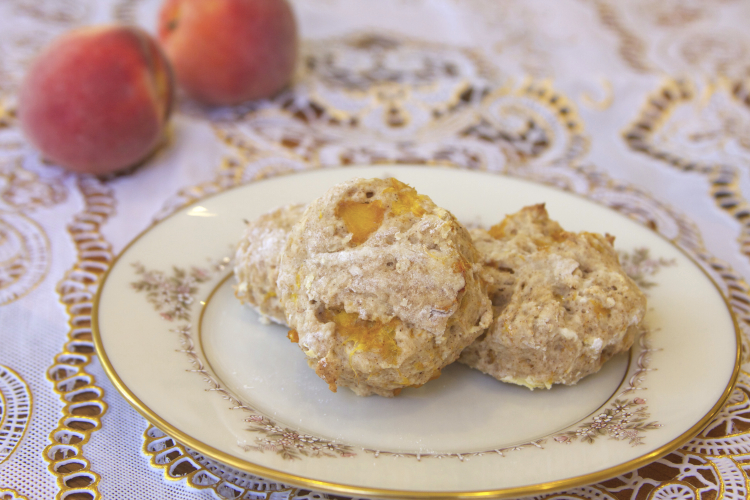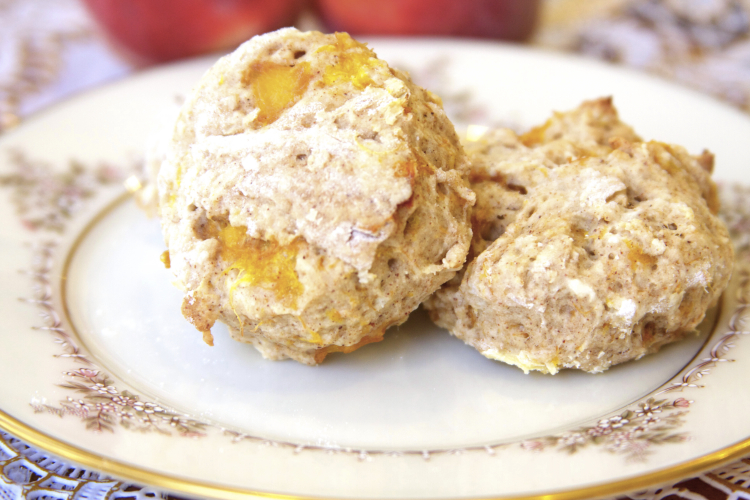Sunday is our local Farmer’s Market. It is my favorite part of Sundays, strolling through the loop of fruits and vegetables, stopping by the McLarens stand to buy jam at, debating over the fresh baked breads, visiting a few of my regular fruit suppliers and discussing how their wares are today. Are the raspberries tart? How about the blackberries? Do they have Gaviota strawberries this week?
One of the coolest parts about interacting with the growers is discovering new produce and bouncing off ideas about how to use it in the kitchen (or in my case the oven!). Take a few weeks ago: Mom and I have a “Berry Lady”. The same woman sells us blackberries, raspberries, and blueberries every week. She knows that I am the only one who eats the reds and that we prefer the blues small if we are planning on cooking with them, large if we are not. She knows that none of us like tart fruit, so warn us ahead of time. Somehow she also knew that I would like mulberries.
I’ve heard of but never seen mulberries before, but there was a very small amount available so based on the Berry Lady’s recommendation, I bought a little basket. And she was right, I loved them. Mulberries are a more subtle, understated berry; their flavor is a blend of sweetness and earthiness. Mom described them as tasting organic, though I didn’t know that organic was a tasting note as well as a farming method 😉
The challenge came with figuring out what to do with a whole basket of mulberries. My flavor book had no mention of mulberries and I had obviously never cooked with them before, so I was pretty much at a loss. I knew that apart from eating raw, I wanted to make them into scones (face it, I want to make everything into scones), but making a simple cream scone and adding mulberries was too simple. I wanted interesting! I wanted unique! I wanted…a drink.
Kidding. Yet I did have a suspicion that elderflower might blend well with the “organic” taste of mulberries, and the only elderflower product I have ever seen in my town is St. Germain Elderflower Liqueur. Guess we really are liquoring up for these scones!
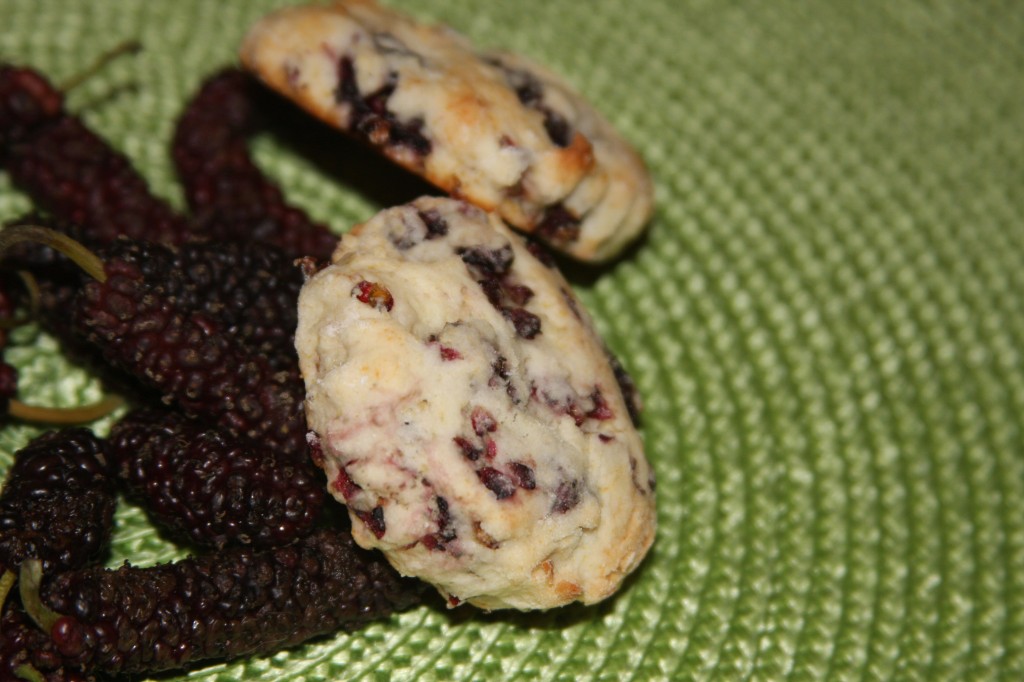
Trust me on these!
These were an incredible success. Sophisticated, elegant, and totally unique, mulberry-elderflower scones are the perfect use for a berry that you have never seen in real life. They spread more than they rise, but they are so moist and delicately flavored that breaking them in half and covering with cream would basically be a crime. Some scones are perfect plain, and these are one of those few.
So if you have a Berry Lady, and next time you see her she happens to have mulberries, take your tastebuds on an adventure and try these scones. Your horizons will be widened forever.
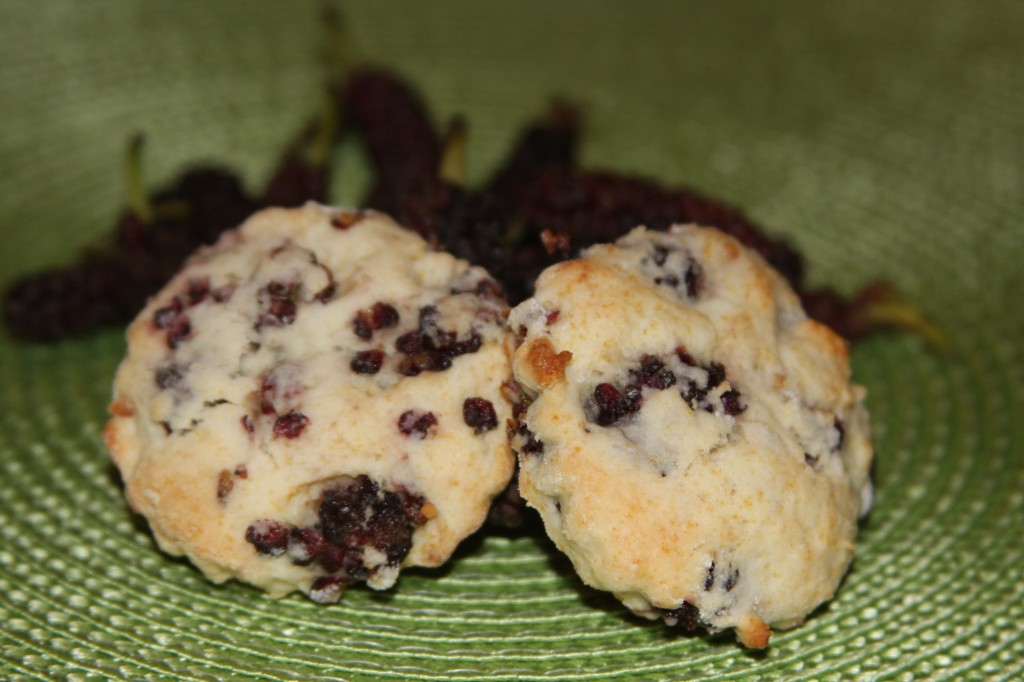
Mulberry and Elderflower Scones
Mulberry and Elderflower Scones
Ingredients
- 200 g all purpose flour
- 2 tsp baking powder
- 1/4 tsp salt
- 50 g ultrafine sugar
- 1 cup chopped mulberries
- 1/4 cup St. Germain liqueur
- 1/2 cup heavy whipping cream
Preheat oven to 450°F. Line a baking sheet with parchment paper and set aside.
In a mixing bowl, sift together flour, baking powder, salt, and sugar. Add mulberries and toss.
In a small bowl, combine the liqueur and heavy whipping cream, mixing well. Slowly add liquid to the flour mixture, beginning to knead to form a dough. Be careful not to crush the mulberries. Dough will be very moist.
Turn out onto a heavily floured work surface and knead a few more times to incorporate a little more flour. Pat down to desired thickness (1 cm). Using a floured (5 cm) scone cutter, cut out scones and place them on the baking sheet. Knead remaining dough together again and repeat cutting out process.
Bake for 8 minutes until the tops are beginning to brown. Remove from oven to a wire rack to cool.
*Forgive the terrible and almost creepy pictures. The lighting was terrible and this was my fifth shoot of the day. My styling ideas were not on point by that time!*
